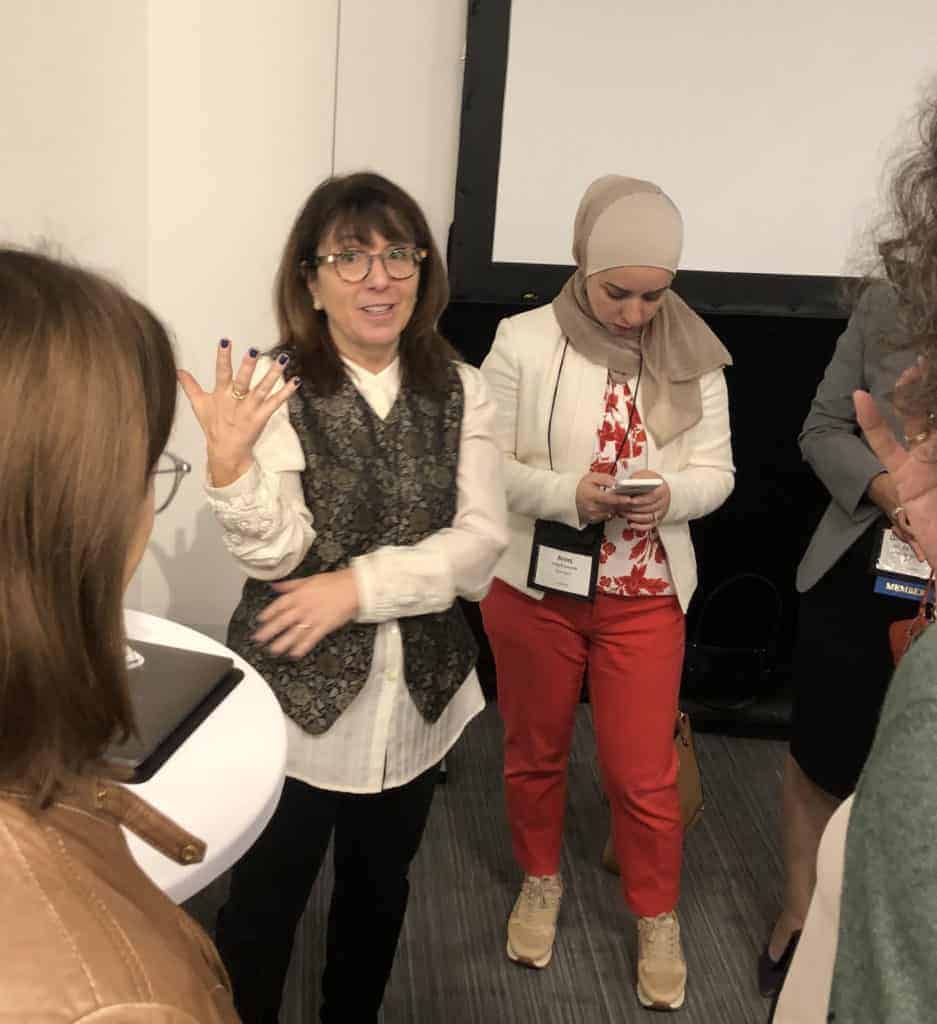Do you remember the last time you were proven wrong about something you absolutely believed was true? Take a beat and think about it. Or just live your life and watch — I’m sure this will happen at some point in the next week.
Here’s one that just happened to me:
Last week I attended Converge, a global coaching conference in Prague. Which meant I had to get to Prague.
The flight to Prague went through Munich (MUN), and flight home went through Frankfurt (FRA). All travel was on Lufthansa. When I booked my flights, I told my husband I’d be traveling through Munich on the way there, and Frankfurt, France on the way back. Because to me, FRA is France. That’s the story I was telling myself.
And then I told at least a dozen people I’d be flying back through Frankfurt, France. I visualized myself speaking French, which I studied in high school and college, walking into shops just to practice. France, France, France. No one corrected me. When I get to believing something, I can be very convincing.
I’d never heard of Frankfurt, France – and I thought it was so odd that they’d give it the same name as a city that’s so well known in Germany. Odd but, those Europeans are crazy. It would probably be a city on the German border.
In the airport, I checked on Google maps to see where Frankfurt, FRA was. Close to Paris? Where was this elusive town? Oh, how I love a map. Google kept pushing me to Germany. Gosh, this must be a very small town in France if Google doesn’t know it. And odd that Lufthansa would have a major hub there. But, that’s what it says…Frankfurt (FRA).
Would you be surprised if I told you that I did not believe I was in Germany until I arrived at the airport? I had convinced myself that FRA – the airport code for Frankfurt, Germany, must refer to France.
I have a good mind and grand storytelling ability. Due to hope, expectation, and prior experience, FRA means France. Despite a not-insignificant number of data to the contrary, pour moi, FRA is France.
Laugh all you like (and I’ll laugh with you) but let’s be real: I am not alone. We all tell stories. About the weather, about how the meeting will go, about how your partner will handle the news. Drop me a line and let me know about the stories you’re telling yourself.
THE POWER OF STORYTELLING
The power of storytelling was a powerful thread at the conference, especially in the neuroscience track. Some common themes :
- Your emotions are made by you. They are based on a story you tell yourself about your situation or your emotional state. Your story is based on past experiences and guesses about the future. Emotions are created by you; they are storytelling.
- You are in control of the story you tell. When clients are stuck – the stuckness is largely based on a story they’re telling themselves. Perhaps yours is “I won’t be able to make as much money if I leave this job,” “It’s easier to find a job when I have a job” or “You aren’t supposed to like your job.” Or maybe you’re telling yourself a different story. (Please stop and think about what that story is – what is YOUR limiting story right now?)
- You have the ability to stop, adjust and tell yourself a different story. The key is to ask yourself a series of key questions, such as “Is this something that has happened or am I guessing this will happen?” “Is this in the present or the future?” “What’s another way to see this story?”
- You can rewrite the story and choose the emotion you tag to it: When you recognize that this is not a fact but instead of prediction, or perhaps just a perspective on something that happened, you can rewrite the story. “It’s too expensive to get to Prague, I don’t want to go,” can become “I have a budget for my training, which opportunity can I choose?” This would enable a person to get excited about an opportunity, replacing fear, dread or worry.
I know, I make it sound simple, and it is rather simple conceptually, and then again so is running a 5-minute mile. You may understand how to do it, and the opportunity for change is in the implementation. It is work and it does work. And, as always, I’m happy to guide you through it if you’d like to collaborate.
TWO CONFERENCE TAKEAWAYS: YES YOU CAN AND JUDGE THOSE WHO DON’T
Neuroscientist Lisa Feldman-Barrett gave a talk on the subject of neuroscience facts vs fiction that was the hit of the conference. For example: Lizard brain in humans? Ain’t no such thing. Amygdala freaks out with anxiety? Nope – the amygdala responds to novelty. And Dr. Barrett has done the research to prove it — and angered so many ahem, neuroscientists that she had to have 2 police forces handling multiple death threats. (See how committed we are to our stories?)

Be on the right side of science: read Dr. Barrett’s book or check out her Ted Talk.
I was also quite moved by a keynote speech given by Luvvie Ajayi – she delivered an inspired message that we should be judging one another, and helping one another raise our collective game. Challenge one another. Speak truth to power and on behalf of those who can’t.
Ack! Should AND judge? In the same sentence? If you know me you know that push to judgement felt like nails on a chalkboard to me and yet – when I listened to Luvvie with a growth mindset (more on the growth mindset here), I was able to see the benefits of judging. Want to know why judgement is good? Why it’s important to be the lone dissenter in the room? Hear Luvvie out on this.
LETS CONNECT
I plan to step up my social media game in the coming months, so if we’re not connected yet on Linked In, Instagram or Facebook, let’s change that. I’ll be creating more content on these platforms, so that I can serve you where you are with ideas that can shift your thinking in real time. Let’s connect.



